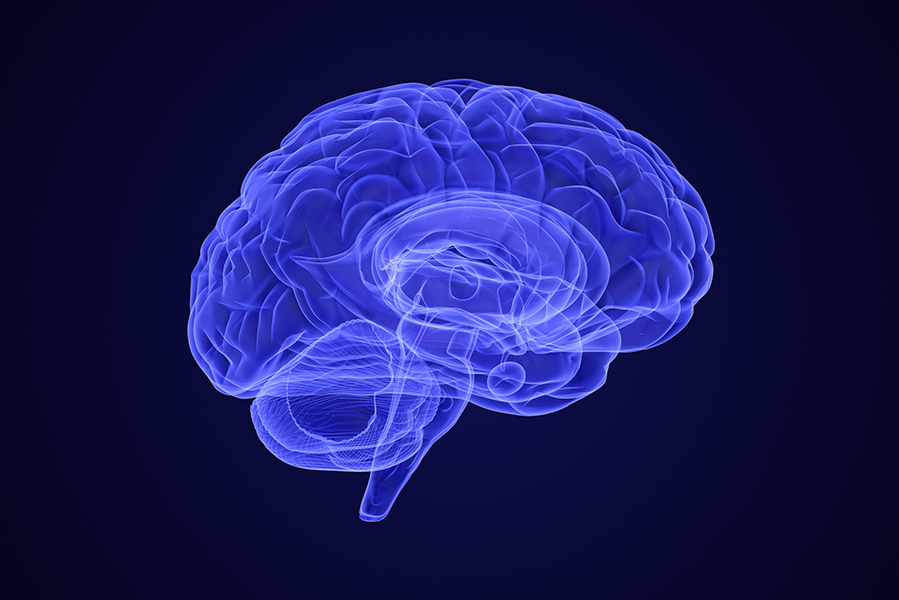
Furthering Traumatic Brain Injury Research
Allegheny Health Network (AHN) is collaborating with Carnegie Mellon University (CMU) to explore a new, minimally invasive approach to delivering electrical stimulation to the deep brain, in an effort to help those who’s cognitive functioning has been affected by traumatic brain injuries (TBI).
The project, called DeepVibe, aims to develop a transnasal – or through the nose – method to target critical regions within the deep brain associated with TBI symptom, such as the subthalamic nucleus and the globus pallidus, without the need for more invasive surgical procedures.
According to the Chuck Noll Foundation, executive function impairments are common after brain injuries. Executive functions include cognitive abilities important for social interactions and academic performance, such as memory, problem-solving, emotional management, focus and concentration, and inhibition control.
When it comes to improving or restoring some of those functions, neurostimulation has potential, but the sites within the brain that would need to be targeted are often difficult to access due to the current state of non-invasive stimulation technologies.
"We are thrilled to be supported by the Chuck Noll Foundation for this important research, and we’re really excited to collaborate with CMU's world renown experts in electrode technology to bring this innovation to life," said Boyle Cheng, Ph.D., Director of Translational Research for both the Neuroscience and Orthopaedic institutes at AHN.
“Deep brain stimulation has shown promise in treating various conditions, and this minimally invasive approach could revolutionize how we manage traumatic brain injuries and improve quality of life for many patients,” said Alexander Whiting, MD, Director of Epilepsy Surgery at AHN and lead clinical investigator in the study.
Deep brain stimulation has traditionally involved direct implantation of electrodes into the brain through small holes drilled into the skull. While the procedure is generally safe, it has limitations, according to Whiting, and the deeper the electrodes go, the greater the risk of tissue damage caused by electrical stimulation or inappropriate electrode trajectories.
“This specific proposal looks at a different approach to deliver that electrical stimulation and get energy closer to those specific targets. If successful, this would offer patients a less invasive approach to other deep brain stimulation procedures,” said Cheng.
The DeepVibe project proposes accessing the deep brain and brainstem through the nose.
“Suffering from a traumatic brain injury can be debilitating. In severe cases, clinicians have few options,” said Pulkit Grover, professor of electrical and computer engineering at Carnegie Mellon University, who leads the For All Lab at CMU and whose research focuses on developing new diagnostic methods for Traumatic Brain Injuries. “I am thankful to the Chuck Noll Foundation for providing early support to this innovative project, and excited to explore novel deep-brain stimulation techniques with Dr. Cheng and AHN collaborators. This work can help millions of people with brain injury. The project will benefit from the amazing facilities and environment at AHN, and the world-class clinicians who are supporting the project."
The three-year project will focus on validating the transnasal approach through three experimental steps, including cadaver studies and human studies. The goal is to establish the feasibility of this minimally invasive technique for clinical application.
“Traumatic brain injuries, even mild ones, can have long-term debilitating effects if not properly managed,” said Donald Whiting, MD, chair of the AHN Neuroscience Institute. “This research seeks to address these challenges by developing new treatment modalities that are both effective and less invasive.”
DBS has been around since the 1980s and has become a well-established treatment for movement disorders such as Parkinson’s disease, Alzheimer’s disease, obesity, and essential tremors. Under the leadership of Dr. Donald Whiting, AHN’s Allegheny General Hospital (AGH) has become a top national referral center for DBS treatment and research.
Earlier this year, a multidisciplinary team of physicians at AHN, led by principal investigator and AHN neurosurgeon Nestor D. Tomycz, MD, were among the first in the nation to safely investigate the use of DBS to treat patients suffering from opioid addiction.
The Chuck Noll Foundation for Brain Injury Research, named for the late legendary head coach of the Pittsburgh Steelers, was formed in 2016 to support continued research and education regarding brain injuries and treatment of sports-related concussions.
“We are proud to fund early-stage, innovative research projects, like this one, that will lead to early diagnosis and treatment of brain injuries in sports,” said Board Chair, Arthur J. Rooney, II.